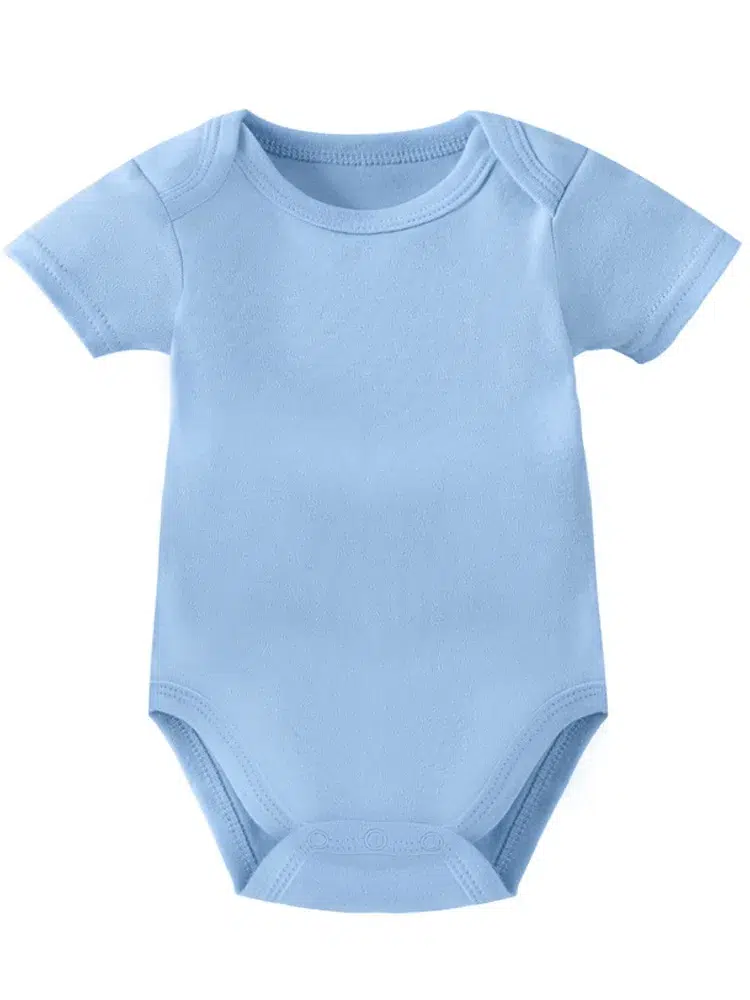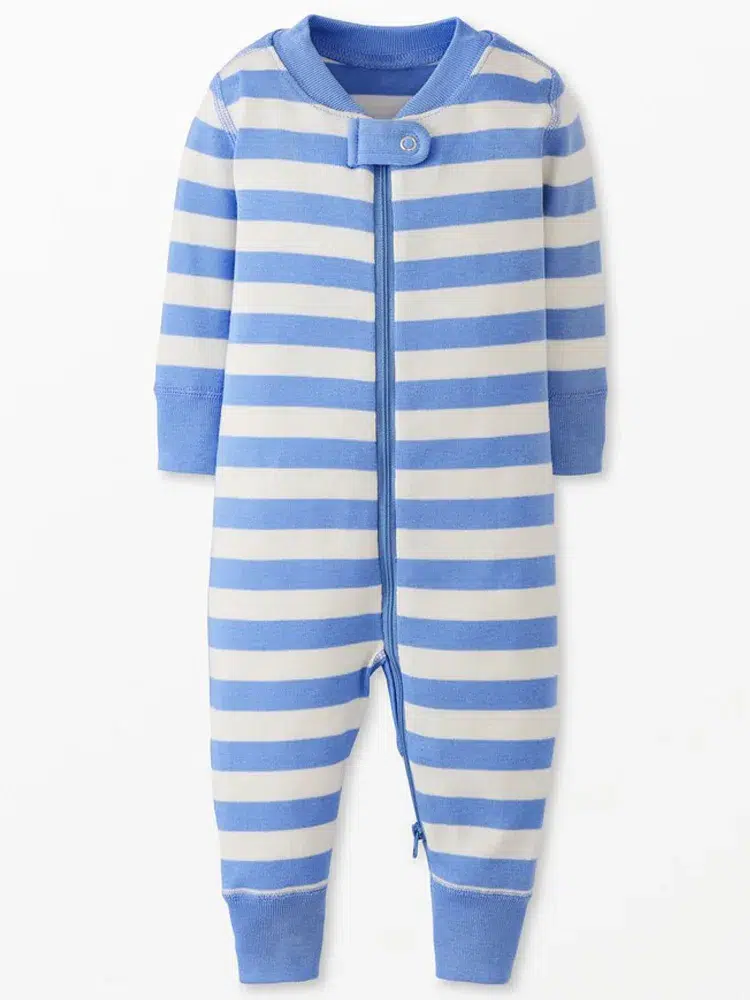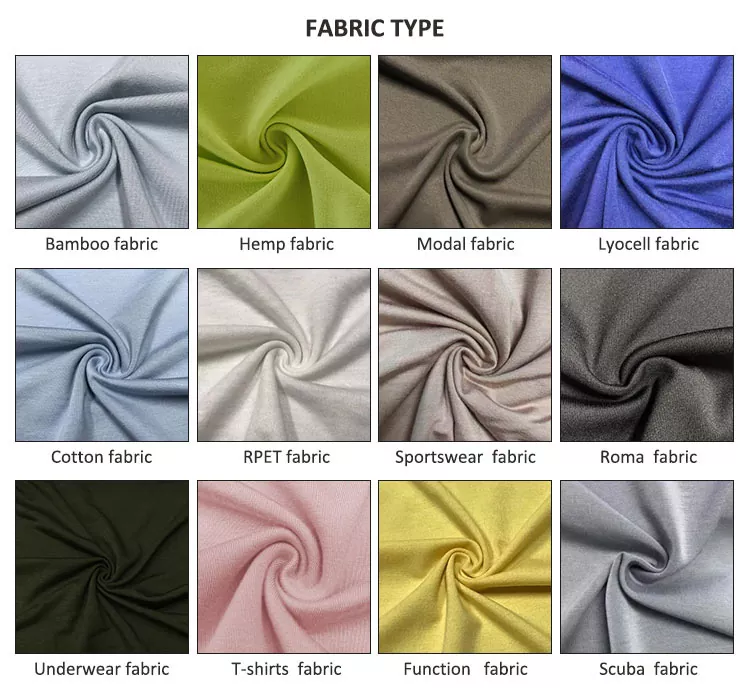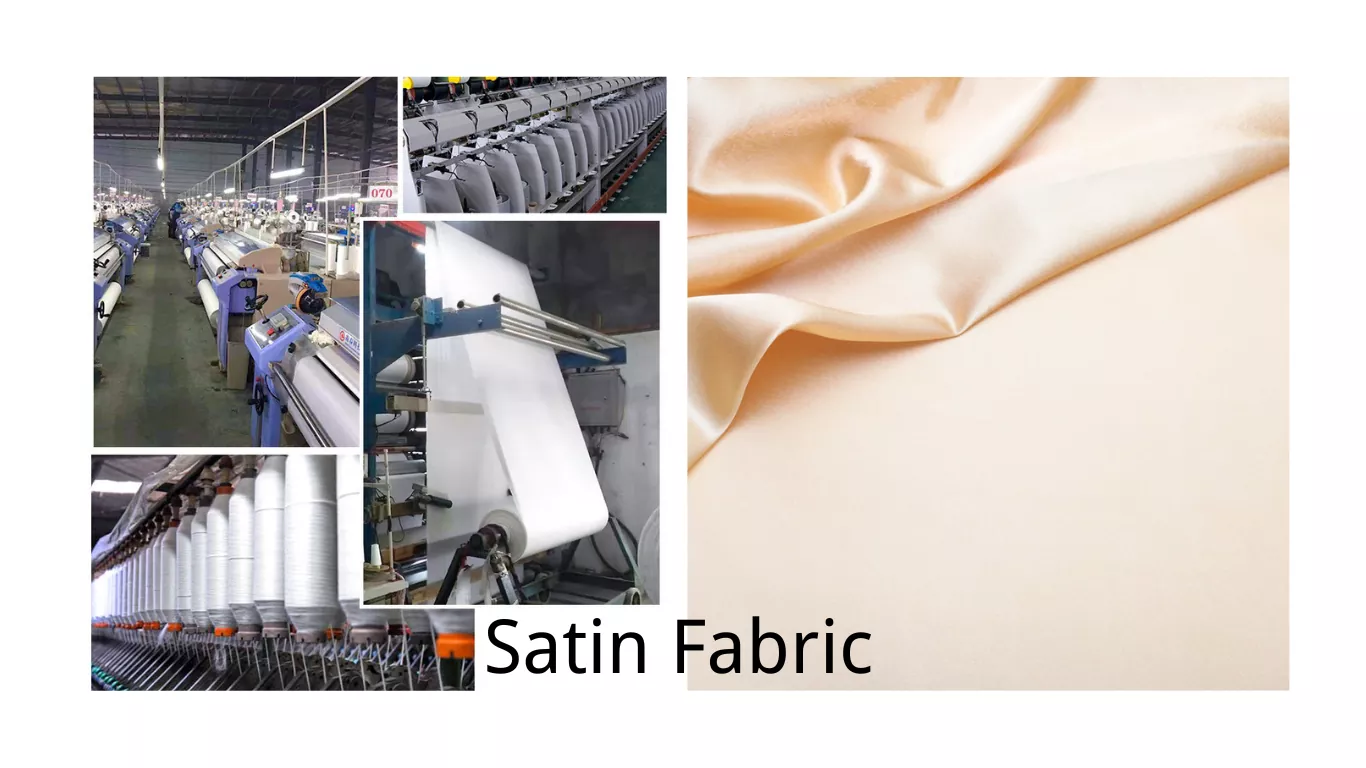Go Green, Go Organic: maak gebruik van duurzame mode met biologische kledingfabrikanten
Sustainable fashion is a broad concept that includes every aspect of fashion that is kind to our planet – from the sourcing of raw materials and manufacturing of the goods to their transportation, consumption, and disposal. A predominant focus of this movement lies within manufacturing, particularly organic clothing manufacturers. These manufacturers adopt a sustainable approach to the entire production process, using organic materials such as cotton, hemp, and bamboo, which involve fewer harmful pesticides and generate less waste during cultivation.
Notably, organic cotton clothing manufacturers from the United States and other parts of the world are setting trends in the industry, aiming for a future where all garments are made sustainably. This industry even extends to include private label organic clothing manufacturers and organic baby clothes manufacturers who strive to promote green alternatives in every niche. Each manufacturer plays a significant role in reducing the environmental impact of the fashion industry by committing to sustainable production practices, demonstrating that profitability and environmental consciousness can coexist in the fashion world.
Organic Clothing Manufacturers: The New Age Trendsetters
Engaging conscientiously with sustainability, the clothes organic cotton manufacturers in the USA have truly become the trendsetters of our era. These pioneers are spearheading innovation and symbolize a revolution in the fashion industry with their transformative practices. Their commitments are more than shallow environmental claims; they hold an unwavering belief in the necessity of reducing the negative impacts of fashion. They are continuously striving to produce clothing that is beautiful, high-quality, and ethical, all the while minimizing pollution, waste, and carbon emissions.
Similarly, on the other side of the pond, organic baby clothes manufacturers in the UK, in tandem with kids organic cotton clothing manufacturers and organic baby clothes manufacturers in the USA, are demonstrating a palpable shift towards organic, safe, and durable clothing for the younger generation. Manufacturing processes are being adapted to replace harmful synthetic fibers with natural and organic alternatives. The use of organic cotton and earth-friendly dyes protects our precious little ones’ health, ensures their comfort, while safeguarding the planet’s future. Thus, these manufacturers are upholding their responsibility towards fostering a sustainable future for the generations to come.
Organic Cotton: A Key Player in Sustainable Fashion

Organic cotton has significantly transformed the landscape of sustainable fashion, underscoring its indispensable role in the industry. It has encouraged numerous sustainable changes in fashion across the globe, not the least of them is the rise of organic fabrikanten van babykleding. The sheer scale of this transformation is evident as more and more manufacturers worldwide are adopting organic practices. These eco-friendly changes have both a global reach and a local impact, redefining the industry’s footprint in regions like the USA, Canada, and China.
Given the upsurge in these organic practices, it’s hardly surprising that organic baby clothing manufacturers are emerging as the new game-changers. Different regions like Canada, USA, and China each have a growing number of organic baby kledingfabrikanten striving to provide quality, sustainable apparel. Their commitment to eco-friendly manufacturing practices is the cornerstone of the organic revolution in the industry. Reaping benefits that extend well beyond fashion, these manufacturers symbolize a future where clothes nurture not just the body but also our planet.
Impact of the Fashion Industry on the Environment
The fashion industry has significantly contributed to the environmental crisis. Among the primary culprits is the heavy reliance on non-renewable resources, including petroleum to produce synthetic fibers, huge amounts of water for dyeing, and the subsequent transformation of raw materials into clothes. The emergence of organic fabrikanten van bamboekleding is a promising approach towards mitigating this environmental hazard. These manufacturers focus not only on creating eco-friendly products but also on supporting sustainable farming practices, negative carbon output, and minimal waste in the manufacturing process.
In addition, the manufacturing of organic garments for kids has taken center stage in recent years. Acknowledging the need for sustainable practices, organic children’s clothing manufacturers are now taking innovative steps to produce eco-friendly fashion. On another front, organic clothes manufacturers are opting for less water-intensive processes and turning towards raw materials like organic cotton and bamboo, which have lower ecological footprints. These initiatives by organic clothing manufacturers promise a shift from conventionally harmful methods, thus paving the way towards an eco-conscious fashion and textile sector.
The Role of Organic Clothing in Reducing Carbon Footprint
Organic clothing manufacturing has become an increasingly important player in the mission to reduce the global carbon footprint. In countries around the world, from Portugal to Australia, organic clothing manufacturers are implementing eco-friendly practices, consistently seeking ways to minimize their environmental impact. In Portugal, for example, manufacturers have turned to locally sourced organic cotton, reducing the need for extensive transportation and subsequent carbon emissions. Australia’s organic clothing industry, meanwhile, has made strides in perfecting sustainable dyeing processes, thus further reducing water pollution and energy consumption.
In other corners of the globe such as Canada, China, and across Europe, organic clothing manufacturers have taken different yet equally impactful steps. Canadian makers are investing heavily in new technologies for processing organic fibers, aiming to reduce energy usage. China has ramped up organic cotton production while implementing stricter regulations on factory pollution. European manufacturers are leading the trend of adopting recycled materials into their organic clothing lines, demonstrating how materials that would have ended up in landfills can be used in stylish, sustainable fashion. All these efforts in unison are signifying the role of organic clothing in curbing the carbon footprint.
The Process of Making Organic Cotton Clothes

Organic clothing is steadily transforming the fashion landscape across the world, with the United States, Portugal, and the United Kingdom leading the way. Organic clothing manufacturers in these countries employ extensive measures to ensure high-quality organic cotton clothing, while adhering to sustainable manufacturing practices. They promote responsible sourcing of raw materials, use of eco-friendly dyes, efficient energy utilization, and ethical labor practices. A predominant part of these manufacturers’ offering includes organic cotton baby clothes, which are skin-friendly and hypoallergenic, making them a popular choice among parents.
On the other hand, China too boasts of noteworthy organic cotton baby clothes manufacturers who are exponentially contributing to the industry. These manufacturers prioritize the health of the consumers and the environment, and follow stringent manufacturing processes. The process begins with the planting of organic, non-GMO cotton seeds that are cultivated without the usage of synthetic fertilizers or hazardous pesticides. The harvested raw cotton is then cleaned, spun into yarn, and woven into fabric. This fabric is then designed, cut, and stitched into clothes by skilled craftsmen, ensuring the comfort and durability of the finished product. As a result, the organic cotton clothing produced not only suits sensitive skin but also withstands numerous washes, making them a perfect choice for babies’ clothing.
Benefits of Choosing Organic Clothing over Conventional Outfits
Turning to organic cotton clothing, one of the major advantages that buyers reap includes promoting environmental sustainability. Numerous organic cotton cloth diapers manufacturers, along with other organic cotton clothing manufacturers from Australia, the UK, and the USA, work on an agenda of protecting and conserving our natural resources. By purchasing their organic products, consumers contribute to reducing harmful impacts on the environment created by synthetic clothing production processes.
On the consumer side, the benefits of organic cotton clothing come with enhanced comfort and durability. Makers such as organic cotton clothing manufacturers in Australia, the UK, and the USA focus on quality along every step of production, yielding eco-friendly clothes with superior lifespan. Additionally, through an eco-conscious approach, these manufacturers ensure that their customers wear only garments free from toxic dyes and finishes, thus promoting skin health.
Case Studies: Successful Organic Clothing Brands and their Contributions
With a significant rise in environmental consciousness, several pioneering brands have emerged in the space of organic clothing, notably in the United States. Among the organic cotton kledingfabrikanten in de VS, Patagonia has emerged as a forerunner in sustainable fashion, incorporating organic cotton and recycled materials in their apparel production processes. They have prioritized ethical sourcing and fair-trade practices in their toeleveringsketen, unveiling a new dimension of responsible fashion and setting an example for others in the industry to follow.
The organic kids clothing manufacturer, Pjgarment, makes an undeniable contribution to the green movement. They are among the exclusive private label organic children’s clothing manufacturers that work with 100% handpicked organic cotton. Boyish Jeans, a company known for its organic cotton prefold cloth diapers, is relentless in its quest to uphold eco-friendly standards, with carbon-neutral shipping and a water recycling system in their production process.
● Patagonia: This brand has truly set the bar for sustainable fashion. They have been successful in incorporating organic cotton and recycled materials into their production processes, demonstrating that it is indeed possible to create high-quality clothing without compromising on sustainability. Some of their key contributions include:
○ Prioritizing ethical sourcing and fair-trade practices
○ Leading by example in responsible fashion
○ Encouraging other brands to follow suit
● Pjgarment: Known as an organic kids clothing manufacturer, this brand has made a significant contribution towards promoting green practices. Their unique selling point lies in using 100% handpicked organic cotton for their products. Key highlights of this brand include:
○ Exclusive use of private label organic children’s clothing
○ Promoting healthy living through the use of 100% handpicked organic cotton
● Boyish Jeans: This company is known for its relentless efforts to uphold eco-friendly standards. Not only do they manufacture prefold cloth diapers from organic cotton but also ensure carbon-neutral shipping and water recycling during production. The main achievements of this brand are:
○ Carbon-neutral shipping methods
○ A water recycling system integrated into their manufacturing process
Consumer Perception: Rising Demand for Organic Apparel

In recent years, a significant shift has been witnessed in consumer preferences, with an increasing amount inclining towards organic apparel. This enhanced demand has equally augmented the market for private label organic clothing manufacturers who offer custom colors. Private label organic cotton clothing manufacturers are also gaining popularity due to their capability to create unique and eco-friendly alternatives to traditional textiles. The discerning consumer today acknowledges the value of such offerings and is thus more inclined towards these organic options.
Pertaining to this trend, USA organic clothing manufacturers have seen commendable growth, contributing significantly to the market share. Their commitment to sustainable practices not only matches consumer expectations but also sets a notable example for manufacturers around the globe. Having a distinctive presence in the organic apparel market, wholesale organic fabrikanten van babykleding have also observed a surge in demand. They are recognized for their dedication to providing high-quality, non-toxic, and comfortable garments for the delicate skin of infants. Concurrently, wholesale organic clothing manufacturers have also tapped into these changing consumer perceptions, offering a wide range of appealing options for the eco-conscious shopper.
Future Prospects of Sustainable Fashion and Organic Clothing Industry
The trend toward ethical fashion consumption has solidified the organic clothing industry as an essential and promising component in the drive towards sustainability. A plethora of studies is unanimous in predicting not just a steady but an escalating customer predilection towards organic apparel. The impetus behind such a shift is derived from an evolving consciousness encompassing environmental wellbeing, the health benefits of organic cotton, and a mounting rejection of fast fashion.
Sustainable fashion and the organic clothing industry are likely to witness considerable expansion and novel avenues for innovation in the coming era. Technological advancements like 3D printing of organic cotton, the cultivation of synthetic bio-fabrics, and AI-predicated patterns for efficient production, are progressively pushing the boundaries of the sustainable fashion realm. Undoubtedly, incorporating these technological methods with organic and eco-friendly materials is the promising panorama for the future of fashion.
FAQs
What is the concept of sustainable fashion?
Sustainable fashion refers to the practice of designing, manufacturing, distributing, and consuming clothes in the most sustainable manner possible, considering both environmental and socio-economic aspects.
Who are the trendsetters in organic clothing manufacturing?
Organic clothing manufacturers are the trendsetters in today’s fashion industry. They are companies committed to the production of clothes using organic materials, energy-efficient manufacturing processes, and fair labor practices.
How does organic cotton contribute to sustainable fashion?
Organic cotton plays a vital role in sustainable fashion as it is grown without the use of synthetic pesticides and fertilizers, which significantly reduces the impact on the environment. It also provides better health conditions for farmers and farm workers.
What is the impact of the fashion industry on the environment?
The fashion industry contributes significantly to environmental challenges, including water pollution, high carbon footprints, and excessive waste generation. It is also associated with various social issues like poor working conditions and inequality.
How does organic clothing help in reducing the carbon footprint?
Organic clothing can significantly reduce the carbon footprint by eliminating the use of synthetic pesticides and fertilizers in cotton cultivation, which are major contributors to greenhouse gas emissions. It also promotes energy-efficient manufacturing processes.
Can you explain the process of making organic cotton clothes?
Organic cotton clothes are made from cotton that is grown without the use of harmful pesticides and synthetic fertilizers. After the cotton is harvested, it is spun into yarn, then tot stof geweven of gebreid. This fabric is then cut and sewn into clothing.
What are the benefits of choosing organic clothing over conventional outfits?
Organic clothing offers various benefits over conventional outfits, including less harm to the environment, fair labor practices, better quality of fabric, and health benefits due to the absence of harmful chemicals.
What are some successful organic clothing brands?
Several brands have successfully incorporated organic materials and practices into their production, such as Patagonia, Pjgarment, and People Tree. These brands have made significant contributions to promoting sustainable fashion.
What is the consumer perception towards organic apparel?
Consumer perception towards organic apparel is increasingly positive, with more and more consumers seeking out environmentally friendly and ethically made clothes. This has led to a rising demand for organic apparel.
How do you see the future of sustainable fashion and the organic clothing industry?
The future of sustainable fashion and the organic clothing industry looks promising. With the growing awareness about the environmental impact of conventional kledingproductie, more consumers, manufacturers, and fashion houses are turning to sustainable and organic alternatives.




